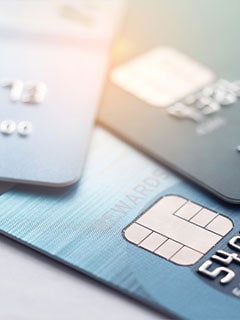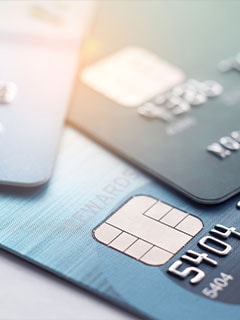CKYC Registry
-
Customer Service Contact us Service request Locate a branch
Find all the help you need
Scan the QR, get our app, and find help on your fingertips

Help CenterSupport topics, Contact us, FAQs and more
-
Login
Are you ready for an upgrade?
Login to the new experience with best features and services
-
Login
Are you ready for an upgrade?
Login to the new experience with best features and services
- Accounts
-
Deposits
IDFC FIRST Bank Deposits
View all Deposits -
Loans
IDFC FIRST Bank Loans
View all Loans - Wealth & Insure
-
Payments
IDFC FIRST Bank Payments
View all Payments -
Cards
IDFC FIRST Bank Cards
View all Cards - Blogs
- Corporate Account
-
Cash Management Services
IDFC FIRST Bank Cash Management Services
View all Cash Management Services - Supply Chain Finance
-
Corporate Lending
IDFC FIRST Bank Lending
View all -
Treasury
IDFC FIRST Bank Treasury
See more details - NBFC Financing
Support topics, Contact us, FAQs and more
- IDFC FIRST Bank Accounts
-
Savings Account
-
Corporate Salary
Account -
Senior Citizens
Savings Account -
First Power
Account -
Current Account
-
NRI Savings
Account -
TASC Institutional
Account -
Savings Account
Interest Calculator
- IDFC FIRST Bank Deposits
-
Fixed Deposit
-
Recurring Deposit
-
NRI Fixed Deposit
-
Safe Deposit Locker
-
FD Calculator
-
RD Calculator
- IDFC FIRST Bank Loans
-
Personal Loan
-
Consumer Durable
Loan -
Home Loan
-
Business Loan
-
Professional Loan
-
Education Loan
-
New Car Loan
-
Pre-owned Car Loan
-
Two Wheeler Loan
-
Pre-owned Two
Wheeler Loan -
Commercial Vehicle
Loan -
Gold Loan
-
Loan Against Property
-
Loan Against Securities
-
Easy Buy EMI card
-
Personal Loan
EMI Calculator -
Education Loan
EMI Calculator -
Home Loan
EMI Calculator
- IDFC FIRST Bank Wealth & Insure
-
FIRST Select
-
FIRST Wealth
-
FIRST Private
-
Mutual Funds
-
Sovereign Gold Bond
-
Demat Account
-
Term Insurance
-
Life Insurance
-
Health Insurance
-
General Insurance
-
Bonds
-
Loan Against
Securities -
Portfolio Management
Service
- IDFC FIRST Bank Payments
-
FASTag
-
Credit Card
Bill Payments -
UPI
-
Funds Transfer
-
Forex Services
-
Pay Loan EMI
- IDFC FIRST Bank Cards
-
Ashva :
Metal Credit Card -
Mayura :
Metal Credit Card -
FIRST Millennia
Credit Card -
FIRST Classic
Credit Card -
FIRST Select
Credit Card -
FIRST Wealth
Credit Card -
FIRST WOW!
Credit Card -
Deals
-
Debit Cards
-
Co-branded Cards
-
Credit Card
EMI Calculator -
FIRST Corporate
Credit Card -
FIRST Purchase
Credit Card -
FIRST Business
Credit Card
- Premium Metal Credit Cards
-
AshvaLifestyle1% Forex₹2,999
-
MayuraLifestyleZero Forex₹5,999
-
FIRST PrivateInvite Only
- Best for travellers
-
MayuraZero ForexMetal₹5,999
-
Ashva1% ForexMetal₹2,999
-
FIRST WOW!Zero ForexTravelLifetime Free
-
FIRST SWYPTravel OffersEMI₹499
-
FIRST Select1.99% ForexLifestyleLifetime Free
-
FIRST Wealth1.5% ForexLifestyleLifetime Free
-
Club VistaraTravelLifestyle₹4,999
-
IndiGo IDFC FIRST Dual Credit CardTravelLifestyle₹4,999
- Max benefits, Free for life
-
FIRST Classic10X RewardsShoppingNever Expiring Rewards
-
FIRST Millennia10X RewardsShoppingNever Expiring Rewards
-
FIRST Select10X RewardsLifestyle1.99% Forex
-
FIRST Wealth10X RewardsLifestyle1.5% Forex
-
FIRST WOW!RewardsTravelZero Forex
-
LIC ClassicRewardsInsuranceShopping
-
LIC SelectRewardsInsuranceShopping
- Reward Multipliers
-
AshvaLifestyleMetal₹2,999
-
MayuraLifestyleZero Forex₹5,999
-
FIRST ClassicNever Expiring RewardsShoppingLifetime Free
-
FIRST MillenniaNever Expiring RewardsShoppingLifetime Free
-
FIRST SelectNever Expiring RewardsLifestyleLifetime Free
-
FIRST WealthNever Expiring RewardsLifestyleLifetime Free
- Rewards & Credit on UPI
-
FIRST Power+FuelUPI₹499
-
FIRST PowerFuelUPI₹199
-
FIRST EA₹NVirtual1% Cashback₹499
-
FIRST DigitalVirtualUPI₹199
-
IndiGo IDFC FIRST Dual Credit CardUPITravelDual cards
- Fuel and Savings
-
FIRST PowerRewardsUPI₹199
-
FIRST Power+RewardsUPI₹499
-
LIC ClassicRewardsInsuranceShopping
-
LIC SelectRewardsInsuranceShopping
- Express and Flaunt
-
AshvaMetal1% Forex₹2,999
-
MayuraMetalZero Forex₹5,999
-
FIRST SWYPEMIOfferMAX₹499
-
FIRST MillenniaRewardsShoppingLifetime Free
- FD Backed rewarding Credit Cards for all
-
FIRST EA₹NVirtualCashback₹499
-
FIRST WOW!Zero ForexTravelLifetime Free
-
CreditPro Balance TransferTransfer & SaveReduce InterestPay Smartly
- IDFC FIRST Bank NRI Forex Solutions
-
Send money to India-Wire transfer
-
Send money to India-Digitally
-
Send money abroad
-
Max Returns FD (INR)
- IDFC FIRST Bank MSME Accounts
-
Platinum Current
Account -
Gold
Current Account -
Silver Plus
Current Account -
Merchant Multiplier
Account -
Agri Multiplier
Account -
TASC Institutional
Account -
Dynamic Current
Account -
World business
Account -
First Startup
Current Account
- IDFC FIRST Bank Business Loans
-
Business Loan
-
Professional Loan
-
Loan Against Property
-
Business Loan for Women
-
Working Capital Loan
-
Construction Equipment Loan
-
Machinery Loan
-
Healthcare Equipment Loan
- IDFC FIRST Bank Business Solutions
-
Payment Solutions
-
Tax Payments
-
Doorstep Banking
-
Point of Sale (POS)
-
Escrow Accounts
-
NACH
-
Payment Gateway
-
UPI
-
Virtual Accounts
-
As per amendment in the Income Tax Rules, PAN or Aadhaar are to be mandatorily quoted for cash deposit or withdrawal aggregating to Rupees twenty lakhs or more in a FY. Please update your PAN or Aadhaar. Kindly reach out to the Bank’s contact center on 1800 10 888 or visit the nearest IDFC FIRST Bank branch for further queries.
-
-
Most Searched
Sorry!
We couldn’t find ‘’ in our website
Here is what you can do :
- Try checking the spelling and search
- Search from below suggestions instead
- Widen your search & try a more generic keyword
Suggested
Get a Credit Card
Enjoy Zero Charges on All Commonly Used Savings Account Services
Open Account Now
Your three-digit credit score is a measure of your creditworthiness. When you apply for a loan or credit with a bank or non-banking financial company (NBFC), the first thing they do is check your credit score. A good credit score or credit report can lead to the approval of your loan application. On the other hand, a bad credit score can lead to its rejection.
Apart from this, there are several other reasons to maintain a good credit score:
· It makes you eligible for loans
As mentioned earlier, a high credit score makes you eligible for availing of loans and credit cards from banks and NBFCs. It reflects that you are a responsible borrower who repays their loan on time.
· You get loans at lower interest rates
A good credit score (say 750 or more) can help you get the best deal on your loan interest rates. Lenders see such borrowers as less risky prospects and provide them discounts on the interest rates for loans.
· Your loans are approved faster
Lenders will approve your loan applications quickly if you have a good credit score. This will ensure that you don’t have to wait too long to get access to finances during an emergency.
· It adds value to your visa application
When you apply for a visa to visit a foreign country, embassy officials look at your credit score and income tax records. If you have a good credit score, the chances of your visa getting approved improve.
How credit cards help to improve your credit score
Credit cards are powerful financial tools that work on instant purchase and future payment principle. They let you borrow money from a fixed credit line and make payments on the go. You can use your credit card to shop and pay at merchant outlets, make online payments, and withdraw cash from an ATM. It works just like a debit card, except that the money isn’t deducted from your bank account instantly.
Furthermore, you can enjoy up to 50 days of interest-free credit on your credit card spending. This means you can use your credit card now and repay the amount in a maximum of 50 days without incurring any interest charges. Using your credit card, you can also earn reward points, cashback, and discount vouchers.
If these benefits weren’t enough, your credit card could also help you improve your credit score. Using your credit card wisely and repaying your credit card bills on time can boost your credit score significantly. The primary factors that affect your credit score include your payment history, number of active loan accounts, credit mix, and credit utilisation ratio.
How having multiple credit cards impacts your credit score
Many people keep more than one credit card. This gives them access to a larger credit limit, and they can enjoy longer interest-free credit periods. But the question remains: how do multiple credit cards affect the credit score of a person?
Well, the short answer is that having multiple credit cards can act as a two-sided sword. If you use your cards properly, they can boost your credit score significantly. On the other hand, if you are careless, it can have a negative impact on your credit score.
Let’s look at how multiple credit cards affect your credit score and how you can use them judiciously to maintain a good credit score.
You become eligible for a larger credit limit
A key factor determining your credit score is your credit utilisation ratio. This is calculated by dividing the total credit you have used by the total available credit limit in your name. When you have multiple credit cards, you get access to a larger credit limit.
For example, if you have one credit card with a credit limit of Rs 50,000, your total credit limit is Rs 50,000. But if you have three credit cards with that same credit limit, your total credit limit goes up to Rs 1.5 lakh. And when you have a large credit limit, your credit utilisation ratio automatically stays low, thereby improving your credit score.
You get the chance to create a clean credit history
Another crucial factor that affects your credit score is your payment history. When you pay all your loan EMIs and credit card bills before the due date, a clean payment history is maintained, and your credit score goes up. The more timely payments you make, the more your credit score improves. So, when you have multiple credit cards, you get to make multiple timely payments in a month, which in turn boosts your credit score significantly.
However, having multiple credit cards also increases your financial responsibility. It can become challenging to manage on-time payments for all of them. And if you miss the payment deadline on any of your credit cards, your credit score can decrease noticeably.
The average duration of your credit history reduces
When credit bureaus calculate your credit score, they consider your average credit history and not the age of your oldest credit account. Every time you avail of a new credit card, your average credit history reduces, and your credit score takes a hit. On average, your credit score drops by five points every time you open a new credit card account. So, do evaluate whether you really need that brand new credit card.
Please note that there’s nothing wrong with applying for a new credit card. It can actually be beneficial to keep multiple credit cards. However, it is advisable not to have more than three or four credit cards. Also, you should not close any of your old credit card accounts, as doing this can cause a reduction in your average credit history.
You start to get more credit inquiries
Every time you apply for a new credit card, your lender makes a soft inquiry on your credit score. The process pulls out your credit report to evaluate your creditworthiness. And every time a soft inquiry is made on your credit report, your credit score falls. Regardless of whether your credit card application is approved or rejected, your credit score suffers.
Therefore, you should refrain from applying for new credit cards frequently. Ideally, apply for a new credit card at least six months after taking the previous credit card. This will ensure that even if a soft inquiry lowers your credit score, it can bounce back. Another thing you can do is to apply only for a pre-approved credit card, as lenders make no credit inquiries for these cards.
For example, you can get a pre-approved IDFC FIRST Bank credit card by simply applying for it online. To check your pre-approved credit card offers, click here.
Conclusion
As you just saw, having multiple credit cards can boost your credit score. However, it is crucial to manage all your cards wisely and keep track of their usage. If you fail to use them properly, your credit score can take a hit. Also, remember to be watchful before applying for a new credit card because this can cause your credit score to drop.
Disclaimer
The contents of this article/infographic/picture/video are meant solely for information purposes. The contents are generic in nature and for informational purposes only. It is not a substitute for specific advice in your own circumstances. The information is subject to updation, completion, revision, verification and amendment and the same may change materially. The information is not intended for distribution or use by any person in any jurisdiction where such distribution or use would be contrary to law or regulation or would subject IDFC FIRST Bank or its affiliates to any licensing or registration requirements. IDFC FIRST Bank shall not be responsible for any direct/indirect loss or liability incurred by the reader for taking any financial decisions based on the contents and information mentioned. Please consult your financial advisor before making any financial decision.
The features, benefits and offers mentioned in the article are applicable as on the day of publication of this blog and is subject to change without notice. The contents herein are also subject to other product specific terms and conditions and any third party terms and conditions, as applicable. Please refer our website www.idfcfirstbank.com for latest updates.























